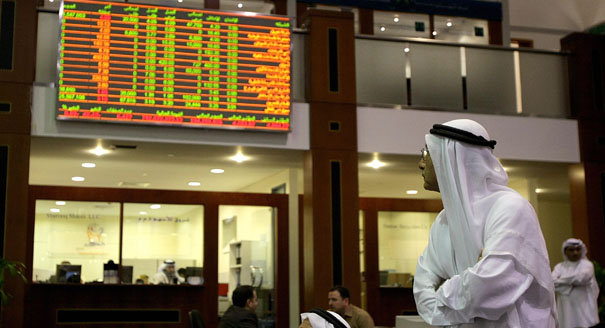In an interview, Ishac Diwan looks at the merits and flaws in the draft legislation distributing losses from the financial collapse.
Michael Young
{
"authors": [
"Michael Young"
],
"type": "commentary",
"blog": "Diwan",
"centerAffiliationAll": "dc",
"centers": [
"Carnegie Endowment for International Peace",
"Malcolm H. Kerr Carnegie Middle East Center"
],
"collections": [
"Inquiring Minds"
],
"englishNewsletterAll": "menaTransitions",
"nonEnglishNewsletterAll": "",
"primaryCenter": "Malcolm H. Kerr Carnegie Middle East Center",
"programAffiliation": "MEP",
"programs": [
"Middle East"
],
"projects": [],
"regions": [
"Gulf",
"United Arab Emirates",
"Middle East",
"Bahrain",
"Europe"
],
"topics": [
"Economy",
"Political Reform"
]
}
Source: Getty
A regular survey of experts on matters relating to Middle Eastern and North African politics and security.
Karen E. Young | Senor resident scholar at the Arab Gulf States Institute in Washington, D.C.
Of the seventeen countries on the new European Union blacklist of “non-cooperative jurisdictions for tax purposes,” the United Arab Emirates and Bahrain are really the only ones with significant financial centers with stock exchanges, financial service industries for private equity funds, asset and private wealth management. These are new global financial centers that act as hubs attracting foreign capital which they then invest globally. New York, London, Frankfurt, and Zurich are competing with these new centers, or hubs, as sources and destinations of capital flows. New hubs, according to McKinsey, account for one third of the growth in total global foreign investment since 2007. They are also disrupting traditional tax revenue sources for governments. So, in some ways, the EU listing can be seen as retribution for the success of these Gulf hubs. Manama and Dubai are sophisticated hubs with “favorable” tax regimes, with little or no corporate or personal income tax.
The financial community in Dubai was particularly surprised by the announcement, especially since there are very good compliance and counter-terror finance measures already in place after years of coordination with authorities such as the U.S. Treasury Department. The implications are, therefore, more political and reputational at the moment, as the listing itself does not entail any penalty mechanism. A blacklist implies criminality, when really the offense is a regulated financial free zone.
Theodore Karasik | Senior advisor at Gulf State Analytics in Washington, D.C.
The implications for Bahrain and the United Arab Emirates of being on the European Union tax haven list is significant. Primarily, the EU wants to stop the outflow of monies into both the Bahraini and Emirati financial systems in order to find tax evaders. The order affects billions of dollars in circulation and forces both Manama, Abu Dhabi, and Dubai to clean up their banking systems for greater transparency to outside regulators and investigators. In addition, this blacklist means that financial institutions from Bahrain and the UAE cannot do business in the EU. That fact, in itself, brings urgency to situation.
To be fair, both countries were working on meeting EU requirements but with delays. Brussels grew impatient. With Brexit talks and a new year full of demanding security and financial requirements, the EU announced their blacklist. The UAE and to a lesser extent Bahrain, who promote business opportunities through innovation and free zones, do not want the stigma of the tax haven list to last long due to reputational damage. The specific requirement that both Bahrain and the UAE need to meet is the Base Erosion and Profit Sharing (BEPS) Minimal Standard. BEPS is a series of legal protocols that halts international corporate tax avoidance strategies. While in Bahrain this may be an easy process with which to comply, in the UAE the measures must be taken over the seven emirates which apparently takes time. What is more likely is given the unique nature of the UAE banking system, Abu Dhabi, Dubai and other emirates have different levels of difficulty implementing BEPS on the level of each emirate as opposed to the federal level. That’s a problem to note for the future when discussing onshore-offshore investment opportunities in the UAE.
At a time of anti-corruption campaigns sweeping key countries, Bahrain and the UAE cannot continue to do business “as usual” and must practice what they preach in terms of efficiency and safety of their banking systems.
Kristian Coates Ulrichsen | Fellow for the Middle East at Rice University’s Baker Institute for Public Policy
Much will depend on whether European Union member states can agree on the level and extent of punitive sanctions to impose on the listed jurisdictions. Closer scrutiny of financial transactions that involve entities and individuals in Bahrain and the United Arab Emirates are unlikely to have a major impact on the cost of doing business and may yield positive results if they further strengthen regulatory systems in both states. Political pressure from the EU on financial institutions in member states to reassess their banking relationships with listed jurisdictions could be more problematic, but is more unlikely to occur, as countries such as the UAE may be expected to lobby intensively and play European capitals against each other. As the fallout from the Panama Papers and the Paradise Papers push governments to toughen approaches toward suspected tax avoidance and money laundering, however, officials in Bahrain and the UAE will want to minimize any damage to their reputation as regional financial centers and investment havens.
Carnegie does not take institutional positions on public policy issues; the views represented herein are those of the author(s) and do not necessarily reflect the views of Carnegie, its staff, or its trustees.
In an interview, Ishac Diwan looks at the merits and flaws in the draft legislation distributing losses from the financial collapse.

Michael Young
The GCC states’ use of Artificial Intelligence will generate much leverage over the global digital infrastructure and climate talks.

Camille Ammoun
In an interview, Shahla al-Kli discusses the country’s parliamentary elections and what they reveal.
Rayyan Al-Shawaf
In an interview, Ibrahim Jalal discusses the Southern Transitional Council’s recent takeover of Hadhramawt and Mahra.

Michael Young
Ankara may seek to annul a maritime deal with Cyprus and expand its influence in the next parliament.

Mohanad Hage Ali